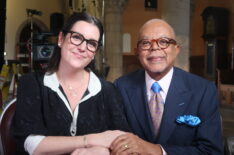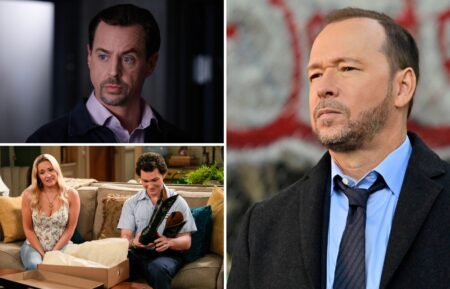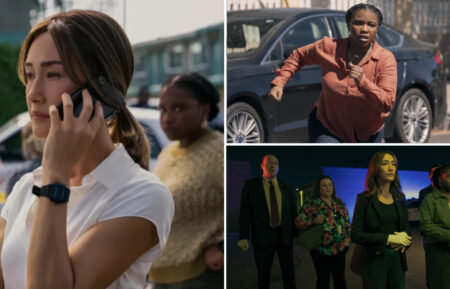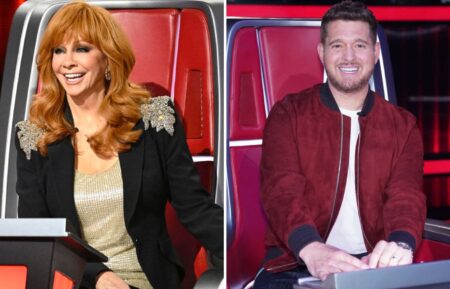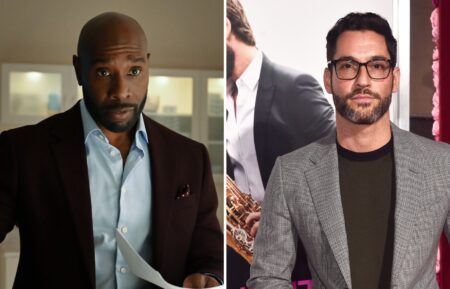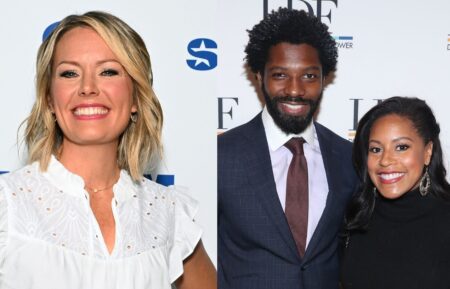Liz Carpenter’s Daughter Details Life of Her Trailblazing Mom Who Shook Up White House
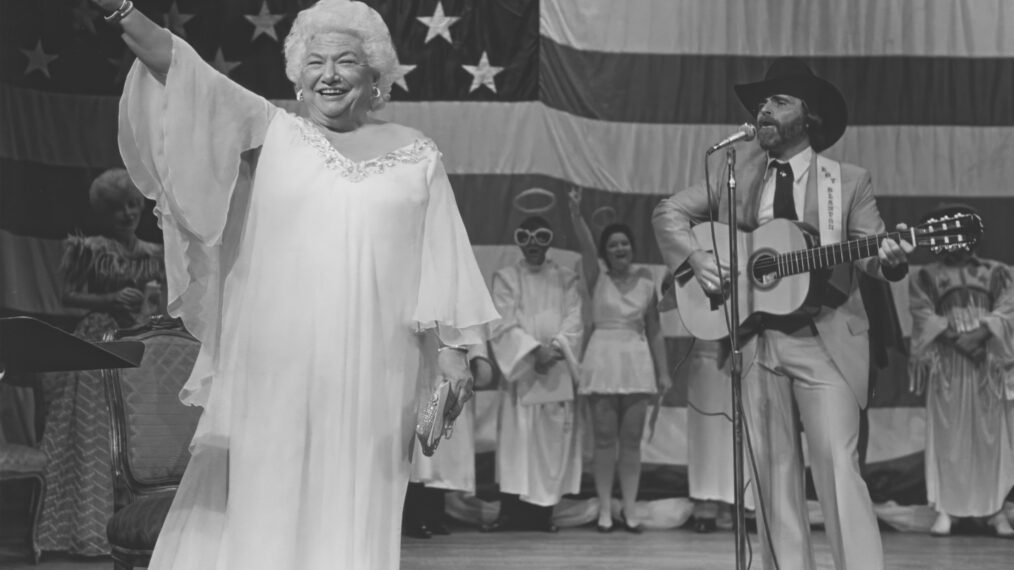
Q&A
A trailblazer in journalism and politics is at the center of Shaking It Up: The Life & Times of Liz Carpenter, which premieres on PBS on Monday, March 3. The documentary traces the witty Texan’s journey from news reporter to key vice-presidential advisor to Lyndon B. Johnson, press secretary for Lady Bird Johnson, and influential activist at the forefront of the women’s right movement.
Affectionately referred to as the P.T. Barnum of the White House, Carpenter, who passed away in 2010, found herself with a front row seat to history. She helped shape it as shown in the film, which features never-seen home movies, photos, interview clips of her on Meet the Press, The Today Show and The David Frost Show, and rarely-shown artifacts. Among them are Carpenter’s initial handwritten draft of LBJ’s first remarks given as president in the immediate aftermath of John F. Kennedy’s assassination, which she referred to as “probably the most important 58 words I ever wrote.”
Daughter Christy, who worked on the documentary with Peabody award-winning director and producer Abby Ginzberg, takes pride knowing more will learn about her mom’s powerful story. Ahead of the PBS premiere timed to Women’s History Month, we sat down with Christy to talk about the making of the project.
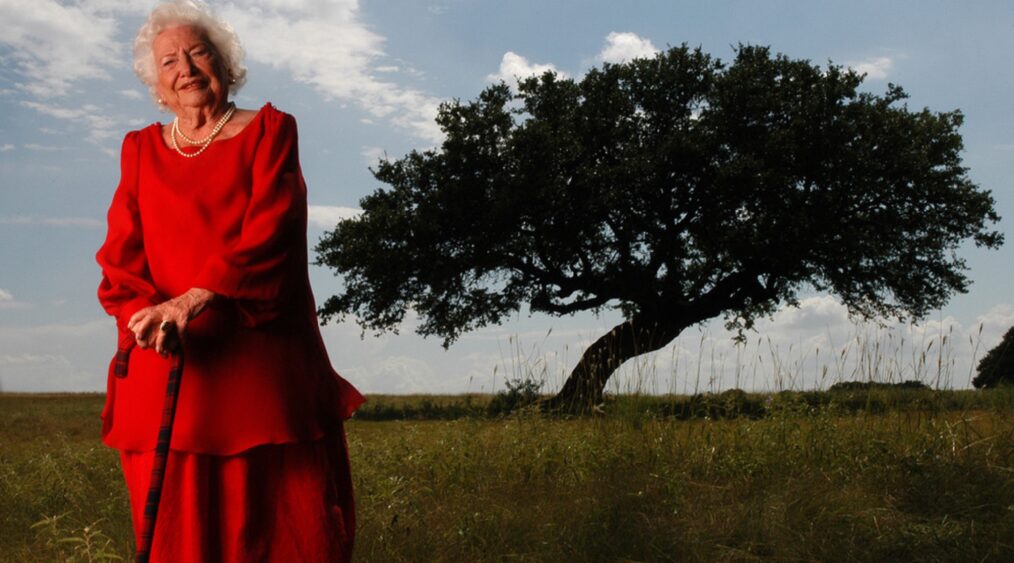
Liz at Robertson Home in Salado, TX where she was born. (Collection of Christy Carpenter/Matt Lankes
Take me through the journey of getting this documentary made.
Christy Carpenter: I had spent several years going through my mother’s papers, which are housed at the LBJ Library. It was steeped in a lot of details around her life. I remembered a lot, but I augmented that by looking at a lot of files because she was a total pack rat. It went from her college days to nearly the end of her life. I was preparing to write a book. I wrote an article in 2020 because it was the 100th anniversary of women’s suffrage. My mother was born September 1, 1920, days after the final adoption of the 19th Amendment. I considered that not a coincidence, so I wrote an article. Abby Ginzberg, who is an old friend and very accomplished filmmaker, read my article and called me saying she thought she’d like to do a documentary on my mom…We started putting our heads together. I had a lot of knowledge of times I knew my mom was interviewed and places with archives, as well as knowing her story. We decided to join forces and put a film together.
What was it like really digging into her life for this?
I brought to it this in-depth knowledge of my mother. I’m also a history buff, so I knew a lot about the eras in which she operated starting into the 1940s until her death in terms of the Women’s Movement, the Johnson White House and such because I was old enough to remember all of that. I knew lots of the people she knew and who were still living, fortunately. I was able to line up and conduct interviews with everyone from Dan Rather to Bill Moyers to Gloria Steinem to historian Doug Brinkley, who has written three large volumes of presidents and the environment. He knew a great deal about the Johnson administration and Lady Bird and the environmental protection activities that went on. Lynda and Luci Johnson, the two daughters of LBJ and Lady Bird, I’ve known since I was a tot. I was able to line up people who could really add context and color to my mother’s story…It was a really perfect kind of collaboration.
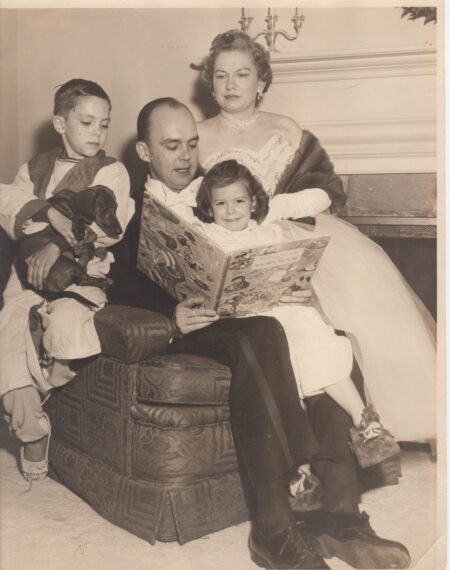
The Carpenters during their first time they were invited to the White House in 1954. (Credit: Collection of Christy Carpenter)
As shown in the doc, she was juggling being a mom while pursuing a full-time career in two male-dominated industries at a time that wasn’t the norm. When did you realize how important she was? How was it growing up around all this activity?
I grew up in Washington D.C., the child of two journalists and then my mom went to work at the White House. I was growing up during that whole period and seeing her in operation. She could never have accomplished all she accomplished if she didn’t have what was very unusual at that time, which was a very supportive spouse. A man who was not threatened by her accomplishments. They worked together at the Carpenter News Bureau, which they were doing during a time that was extremely uncommon. As a child, my parents would take me to various parties, meeting ,and all kinds of gatherings of people. These usually included members of congress, journalists and people from the executive branch.
The Texans in Washington at that time were a close knit group. I knew all those kids of these members of congress and so forth. I went to school with them. People’s whose parents were in the cabinet and federal agencies. Our conversation was a one-conversation household, and that was politics. When my parents were home, that was the conversation. I felt like I was in the middle of a major power center. I knew my parents were players and were regarded as part of the mix of people who were having an influence on public policy. That was the reality of the world I lived in. That’s how I became aware. Then I became more aware when my mom went to work for Johnson as vice president.
You witnessed your share of history.
The whole assassination experience. I was in ninth grade when Kennedy was assassinated. I was old enough to be fully aware of what was going on. My mom was catapulted along with the rest of the Johnson team into the White House. My mother would include me when she could with receptions and other things at the White House. When they would bring in city children to the White House, I would volunteer to help with the little kids. All kinds of ways I got exposure. I knew my parents were important. They ended up on the news pages. Sometimes people writing about them would come to photograph the family. I have all kinds of clippings of stories about my mother and the family where my brother and I were featured. I was covered in a limited way as a child.
Her involvement in the Women’s Movement began with a phone call from Betty Friedan in 1971 late in the spring saying, “I think the Women’s Movement is hitting a wall. If we don’t get political and start to elect women to office, the Women’s Movement is in danger of not making progress.” She invited my mother to join her. Shirley Chisholm, Gloria Steinem, and others for a meeting at a very crowded hotel room. My mom asked her if she could bring her daughter. I was college age at that time. There I was at the birth of the National Women’s Political Caucus. I just use that as an example of the kind of exposure I got of the important things that were happening.

Collection of Christy Carpenter
Being journalists and always looking for sources, did the parents ask things like, “What did you hear from the playground?”
I don’t remember her getting a clue to a great or breakthrough story in that sense. However, I will say my mother was great about asking for the opinions of everybody. One of our associate producers Joan Murray was a neighborhood kid who lived four houses down from us growing up. Her grandfather was Vice President Henry Wallace. She said, “Liz was the only adult from my childhood who asked my opinion.” She wanted to know what everybody thought. Part of that was the curiosity of a journalist, but she was very open about who might have something interesting to say and an opinion worth hearing.
There is some incredible footage including of your mother, including on Meet the Press and conversations with President Johnson. Was there anything that you didn’t know about or stood out you didn’t see before?
There was certainly lots of footage I’d never seen before. I completely forgotten she was on with David Frost. I loved that video we found from the LBJ Library where it was the early to mid 1950s where Lyndon Johnson is doing a video report back to his constituents saying, “I’m sitting here with two of my oldest and dearest friends Liz Carpenter and Bill White.” Bill was a major national columnist. It was hilarious.
I didn’t know there was this home movie Lady Bird had taken at the LBJ Ranch. I remember when my parents went down, and my dad went deer hunting. My father was not a hunter and ended up with a big bandage on his eye from a gun kicking back. I didn’t know there was this home movie of LBJ and my father both giving my mother a kiss. We had the deer my dad shot hanging in our den in our house for years, but I never knew the backstory. There was also the letter from LBJ inviting them to come out for that visit to the ranch. They were journalists at the time. My mother wasn’t working for them yet, so there was that closeness that had been developing since my parents started covering LBJ. The Johnsons socialized with everyone. They were very inclusive.
What do you hope people walk away with from watching?
Right from the beginning, Abby and I believed public television was the place for this film. This was a film that provides education, entertainment and inspiration. That is part of public television’s creed, to provide that to people. We hope people walk away inspired. That it’s eye-opening in terms of the historical context we hope comes through in the film. The times she operated in were times of tremendous social, cultural and political ferment. Opportunities for women and minorities were opening up. The environmental movement was beginning to get under way. We’re hoping it really is educational as well as inspirational. That if someone rolls up their sleeves and their passionate about something and want to make a difference, it’s possible.
Shaking It Up: The Life & Times of Liz Carpenter, Premiere, March 3, PBS (Check Local Listings)

